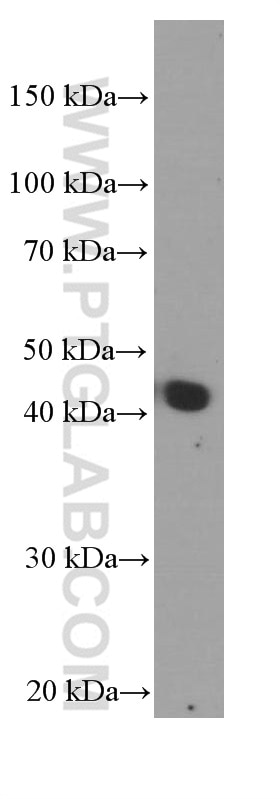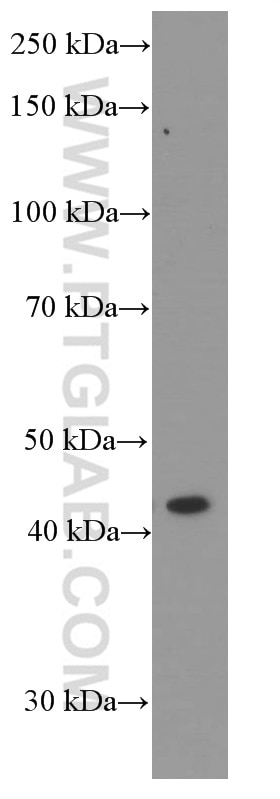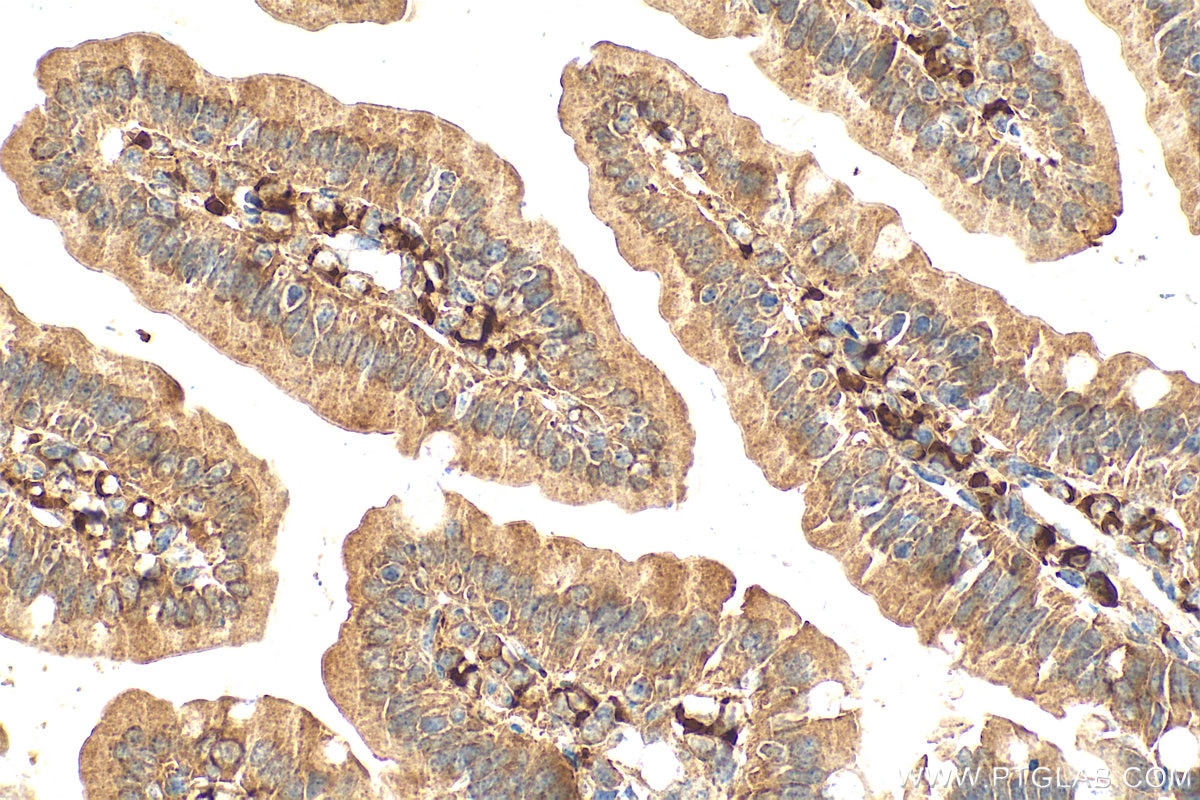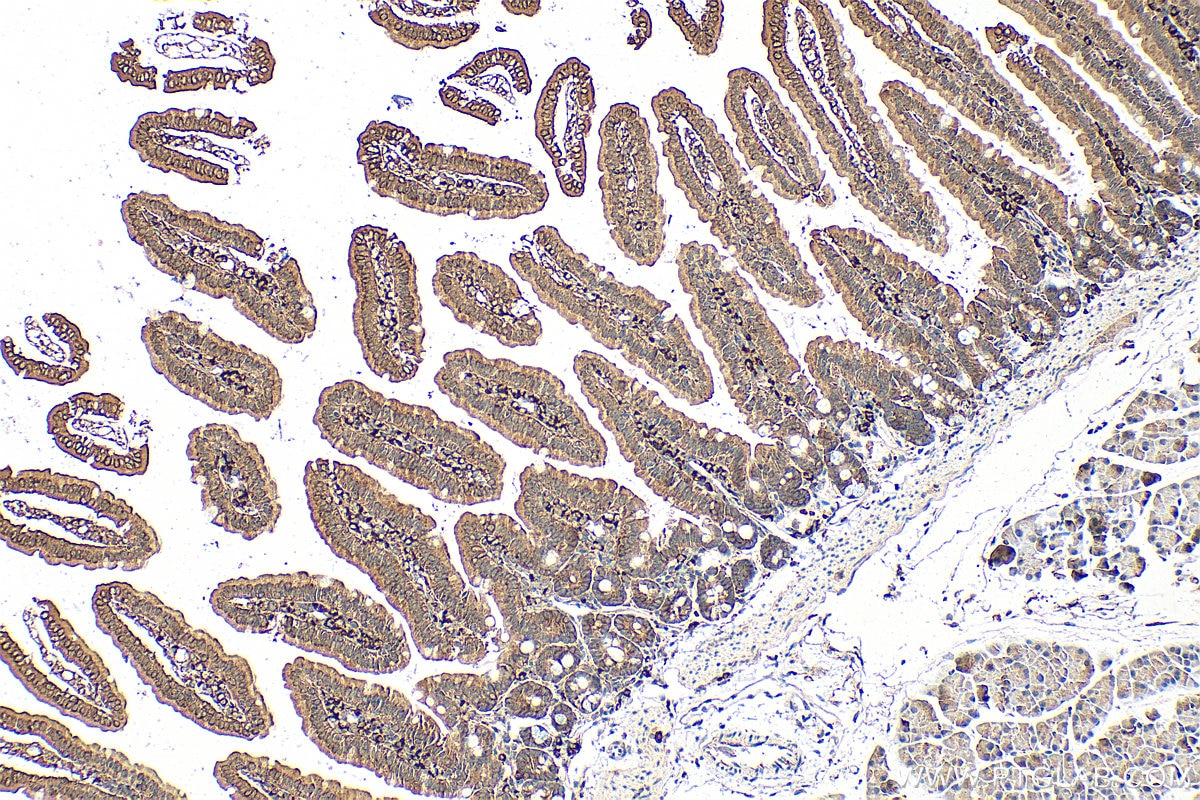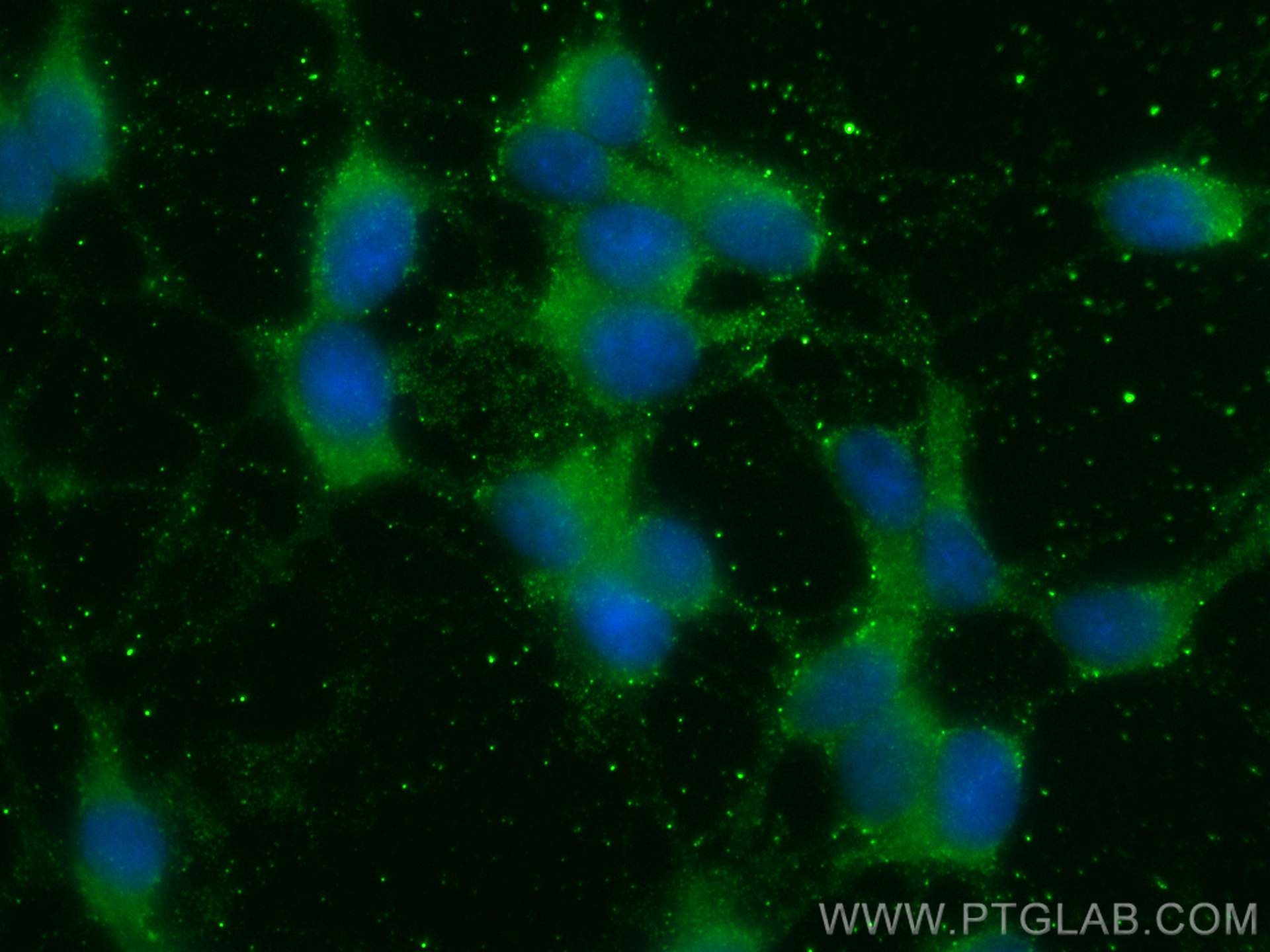Anticorps Monoclonal anti-APOA4
APOA4 Monoclonal Antibody for WB, IHC, IF/ICC, ELISA
Hôte / Isotype
Mouse / IgG1
Réactivité testée
Humain, souris
Applications
WB, IHC, IF/ICC, ELISA
Conjugaison
Non conjugué
CloneNo.
3A9A8
N° de cat : 66252-1-Ig
Synonymes
Galerie de données de validation
Applications testées
| Résultats positifs en WB | tissu plasmatique humain, cellules L02 |
| Résultats positifs en IHC | tissu d'intestin grêle de souris, il est suggéré de démasquer l'antigène avec un tampon de TE buffer pH 9.0; (*) À défaut, 'le démasquage de l'antigène peut être 'effectué avec un tampon citrate pH 6,0. |
| Résultats positifs en IF/ICC | cellules SH-SY5Y, |
Dilution recommandée
| Application | Dilution |
|---|---|
| Western Blot (WB) | WB : 1:1000-1:8000 |
| Immunohistochimie (IHC) | IHC : 1:50-1:500 |
| Immunofluorescence (IF)/ICC | IF/ICC : 1:200-1:800 |
| It is recommended that this reagent should be titrated in each testing system to obtain optimal results. | |
| Sample-dependent, check data in validation data gallery | |
Informations sur le produit
66252-1-Ig cible APOA4 dans les applications de WB, IHC, IF/ICC, ELISA et montre une réactivité avec des échantillons Humain, souris
| Réactivité | Humain, souris |
| Hôte / Isotype | Mouse / IgG1 |
| Clonalité | Monoclonal |
| Type | Anticorps |
| Immunogène | APOA4 Protéine recombinante Ag12454 |
| Nom complet | apolipoprotein A-IV |
| Masse moléculaire calculée | 396 aa, 45 kDa |
| Poids moléculaire observé | 45-46 kDa |
| Numéro d’acquisition GenBank | BC074764 |
| Symbole du gène | APOA4 |
| Identification du gène (NCBI) | 337 |
| Conjugaison | Non conjugué |
| Forme | Liquide |
| Méthode de purification | Purification par protéine G |
| Tampon de stockage | PBS with 0.02% sodium azide and 50% glycerol |
| Conditions de stockage | Stocker à -20°C. Stable pendant un an après l'expédition. L'aliquotage n'est pas nécessaire pour le stockage à -20oC Les 20ul contiennent 0,1% de BSA. |
Informations générales
APOA4 is a major protein component of chylomicrons in postprandial lymph and plasma. It is synthesized in the small intestine and the liver, attached to chylomicrons by enterocytes, and secreted into intestinal lymph during fat absorption. APOA4 is intimately involved in metabolism and has protective roles in cardiovascular diseases like atherosclerosis. APOA4 can promote INS secretion and maintain glucose homeostasis. It also has potent antioxidant and anti-inflammatory properties.
Protocole
| Product Specific Protocols | |
|---|---|
| WB protocol for APOA4 antibody 66252-1-Ig | Download protocol |
| IHC protocol for APOA4 antibody 66252-1-Ig | Download protocol |
| IF protocol for APOA4 antibody 66252-1-Ig | Download protocol |
| Standard Protocols | |
|---|---|
| Click here to view our Standard Protocols |
